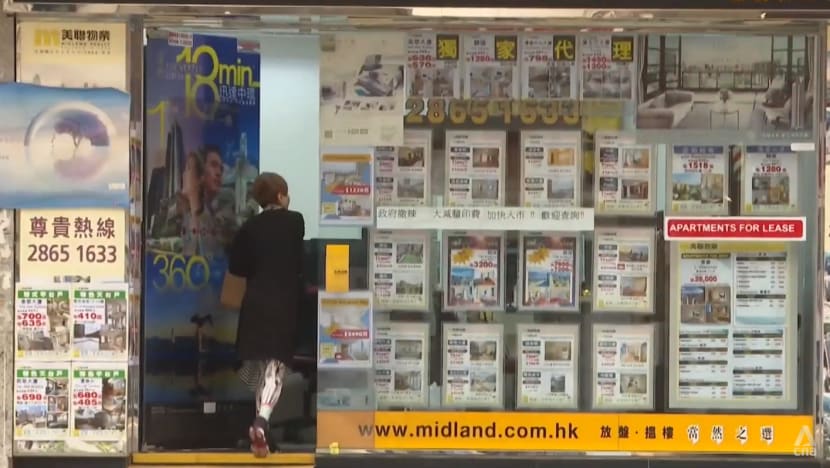Hong Kong property players hope authorities lift cooling measures in upcoming Budget
The government rolled some property curbs back to stimulate the market late last year to little effect.

Though home prices are falling, interest rates remain high in Hong Kong, keeping buyers at bay.

This audio is generated by an AI tool.
HONG KONG: Hong Kong finance chief Paul Chan is widely expected to lay out a game plan to reverse the property slump in his Budget speech on Wednesday (Feb 28).
Ahead of the annual address, city authorities have faced increasing pressure to scrap property cooling measures, with political heavyweights and economists saying the move will rejuvenate the sluggish market without resulting in higher home prices.
Property curbs have been in place for over a decade to stop speculation but the government rolled some back to stimulate the market late last year.
They halved the buyers’ stamp duty and waived duties for those who resell their property after two years.
Incoming eligible foreign talent also enjoy a full waiver if they become permanent residents. There have been new inquiries from this segment, said Mr Mok Kwok Ho, account manager from Property-Link Agency Limited.
“They never used to think about buying property in Hong Kong. But after this scheme launched, they’ve started to think about buying a property in Hong Kong as they need to allocate assets to a different market,” he said.
CHANGES NOT SUFFICIENT
However, the changes have not been enough to move the needle. Last year, property transactions dropped to the lowest in 33 years while home prices hit a record low since February 2017.
The luxury market, for instance, saw a 21.4 per cent decline in prices last December compared to its peak in 2019.
Among the properties that remain unsold is a 4-bedroom unit in the Soho area, a prime location. It has been on the market for nearly nine months, said Mr Mok, whose firm represents the seller.
While the number of inquiries on the property increased after the landlord decreased the asking price for the 1,350 sq ft duplex to HK$40 million (S$6.9 million), it has yet to be sold.
“I can say after the price adjusted, inquiries increased. But people must consider many other factors like the mortgage. That's why the purchasing is not as hot as before,” said Mr Mok.
Though home prices are falling, interest rates remain high, keeping buyers at bay.
The city's borrowing costs have surged in the last two years as the United States Federal Reserve aggressively raised rates to fight inflation.
The Hong Kong Monetary Authority has followed the US Federal Reserve in lockstep since 1983 on interest rates policy under its linked exchange rate system.
CALLS TO SCRAP PROPERTY CURBS
The demand from mainland clients has also slowed along with China’s economy. There have been increasing calls for the Hong Kong government to lift all property curbs, a move which one analyst said will help.
"If you try to convince them (the authorities) to remove all the cooling measures, the transactions could catch on more quickly. And when there's reinforcement of the market like this, the interest rate comes down later. It will help the market,” said Mr Martin Wong, director of research and consultancy of Greater China at Knight Frank.
Mr Wong estimated that the earliest rebound will be in 2025 if interest rates remain high, but noted that there are other hurdles.
“There's a large number of unsold units in the market by developers and if the developers have to (sell) their inventories, they need to cut prices. So that will set a new benchmark for the market to go down for the prices,” he said.
However, this could spell wider implications for the property market, given the high level of negative equity loans. Negative equity occurs when the value of an asset owned is less than the outstanding balance on a loan.
Hong Kong Monetary Authority figures show that the value of negative equity loans surged to a 20-year high of US$16.7 billion (S$22.5 billion) at the end of last year.
“If we are foreseeing 2024 for the home prices to continue to go down, the negative equity cases will continue to go up this year. I think in terms of implication, our banks will be exposed to a higher risk than before. Although it's not up to an alarming level, the risks will continue to go up,” he said.

















